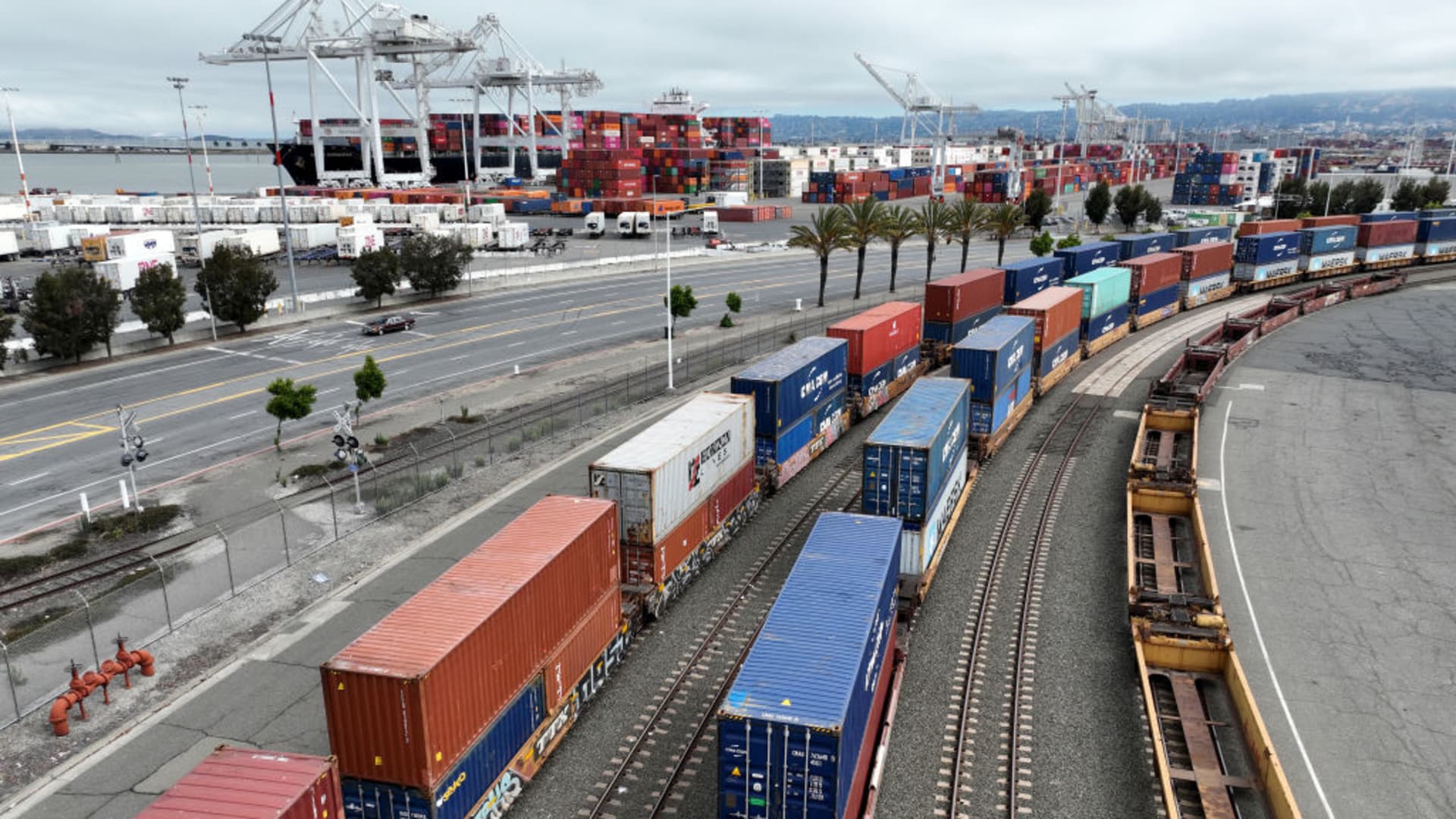Products You May Like
The second-quarter GDP report brought the economy in line with a common definition of recession. But we won’t know for sure if it officially is declared one at least for months.
That’s because the official arbiter in such matters is the Business Cycle Dating Committee of the National Bureau of Economic Research, and it doesn’t use the same definition as the one commonly accepted of at least two consecutive quarters of negative growth.
Rather, the NBER defines recession as “a significant decline in economic activity that is spread across the economy and lasts more than a few months.”
That could mean consecutive quarters of decline. In fact, every time since 1948 that GDP has fallen for at least two straight quarters, the NBER ultimately has declared a recession. Second-quarter GDP dropped 0.9%, while the first quarter declined by 1.6%, according to the Bureau of Economic Analysis.
But the NBER doesn’t even use GDP as a major factor in its thinking, and it declared a recession in 2001 without there being consecutive declines.
And get ready for a surprise again this time: There are virtually no major Wall Street economists who expect the NBER to say the U.S. economy was in recession during the first half of 2022.
“We weren’t in a recession for the first half of the year, but odds are rising we will be by the end of the year,” said Mark Zandi, chief economist at Moody’s Analytics.
Like his cohorts on the Street, Zandi said the bustling jobs market — which even with 457,000 jobs a month added this year is still not back to pre-Covid levels — is the primary reason the NBER won’t declare a recession. But there are others.
“We created too many jobs. We had record-low layoffs, we had record-high unfilled positions. Consumer spending, business investment, were all positive,” he said. “I just don’t see them declaring a recession.”
Federal Reserve Chairman Jerome Powell said Wednesday he doesn’t think the economy was in a true recession, and he even questioned the accuracy of the GDP data.
“What we have right now doesn’t seem like” a recession, Powell said. “And the real reason is that the labor market is just sending such a signal of economic strength that it makes you really question the GDP data.”
The NBER criteria
While the NBER is hardly a household name, the government and business news outlets take the private research organization’s proclamations as gospel when determining expansions and contractions.
The organization is generally thought to use six factors:
- Real personal income minus transfer payments
- Nonfarm payrolls
- Employment as gauged by the Bureau of Labor Statistics’ household survey
- Real personal consumption expenditures
- Sales adjusted for price fluctuations
- Industrial production
“If this definition feels involved, it’s because it is,” Tim Quinlan, senior economist at Wells Fargo, said in a client note earlier this week. “Defining a recession isn’t easy and extends beyond simply a downturn’s duration to how deep and widespread it is throughout the economy.”
Following Thursday’s GDP release, Quinlan said conditions are fast approaching even the NBER’s criteria.
“Insisting upon the precise definition of recession will be an even more fraught task in light of the unequivocal deterioration in economic activity reflected in today’s 0.9% contraction in Q2 real GDP,” he wrote. “Yet real consumer spending continued to forge ahead and the job market still has legs. It is too early call the end of this expansion, but the hour is fast approaching.”
Political ramifications
The question of recession has become a political one.
Earlier this month, the White House raised some hackles when it released a blog post insisting the economy is not in a recession. Critics charged the administration was trying to change a long-held definition and the media was being compliant by noting the NBER factor.
The post noted that “holistic data” such as “the labor market, consumer and business spending, industrial production, and incomes” figures into the real definition of recession.
“Based on these data, it is unlikely that the decline in GDP in the first quarter of this year—even if followed by another GDP decline in the second quarter—indicates a recession,” the post said.
“Policymakers will no doubt be tying themselves in knots trying to explain why the U.S. economy is not in recession. However, they make a strong point,” said Seema Shah, chief global strategist at Principal Global Investors. “While two consecutive quarters of negative growth is technically a recession, other timelier economic data are not consistent with recession.”
Even if the NBER does not declare a recession in the first half, the economy is far from out of the woods. Higher interest rates, persistent inflation, and a historically sour mood on behalf of consumers and businesses pose major dangers ahead.
Many of those same economists who doubt a first-half recession say one is highly possible over the next year or so.
“People have very negative sentiment. It’s about as dark as I’ve ever seen it,” said Zandi, the Moody’s economist. “I’ve never seen anything like it in terms of just the anticipation of this bad economy that’s dead ahead. At the end of the day, a recession is a loss of faith. Consumers lose faith they’re going to have jobs, businesses lose faith they’re going to be able to sell what they produce. Risks are very high we lose faith and go into recession.”

